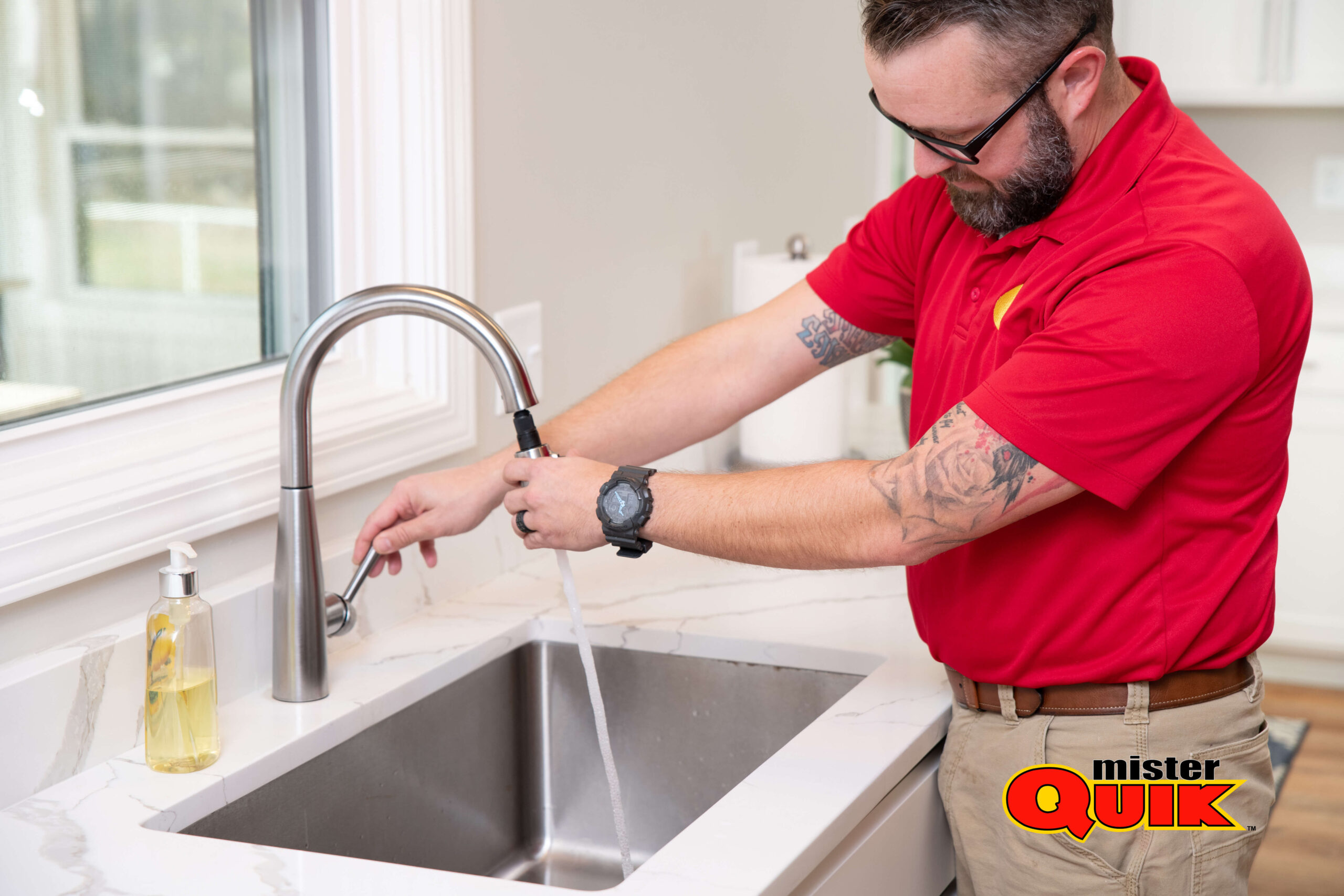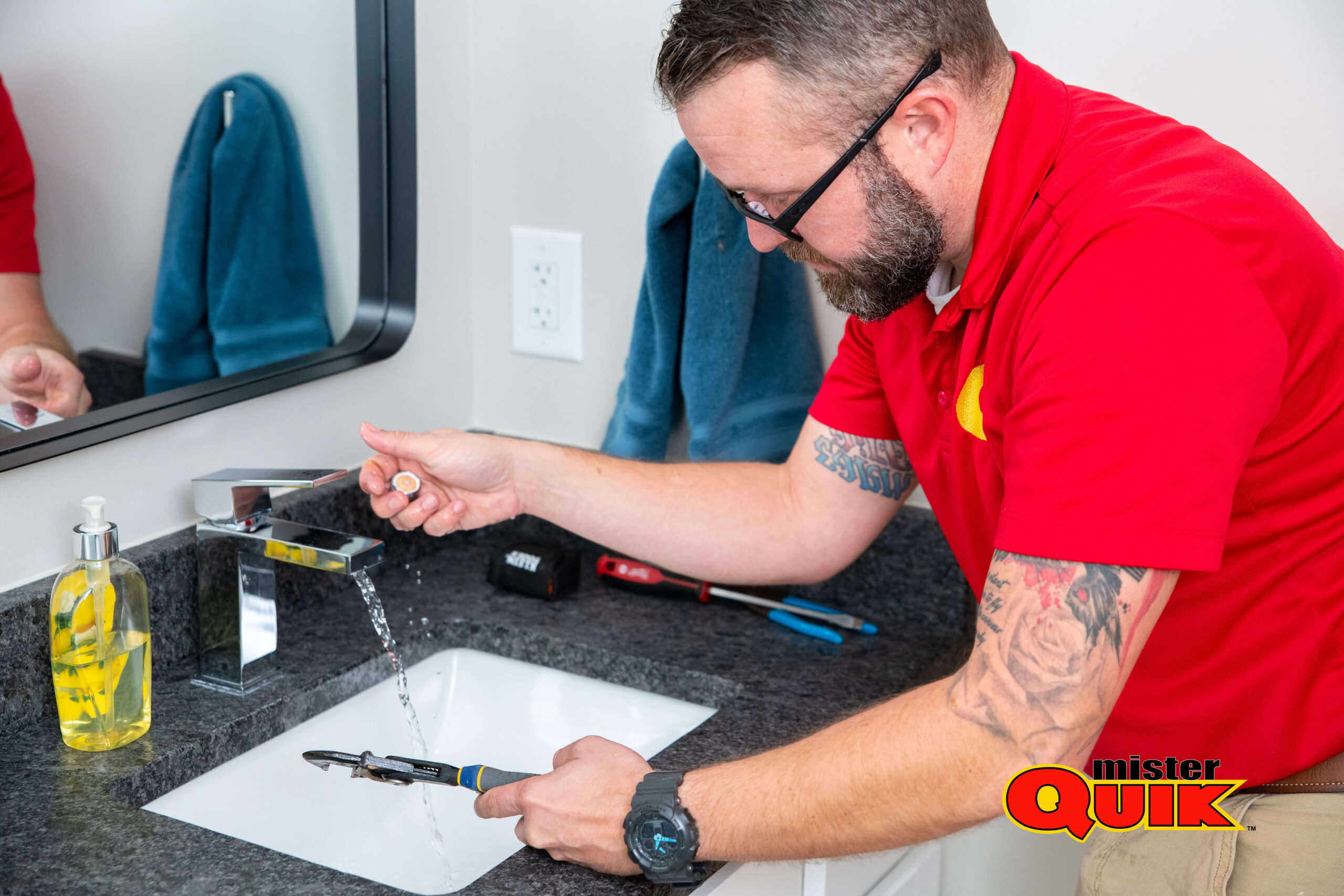Tankless hot water heater
Schedule on your own without making a call. Click the button below to get started!

Tankless water heater vs tank
Are you torn between a tankless water heater and a traditional tank model? Understanding the differences can help you make an informed decision. Tankless water heaters offer unique advantages over traditional tanks, but they may not be suitable for every home. Here’s what you need to know:
- Energy Efficiency: Tankless heaters only heat water when needed, reducing energy consumption.
- Space Savings: Tankless models are compact and can be mounted on walls, saving valuable floor space.
- Endless Hot Water: With a tankless heater, you’ll never run out of hot water, unlike traditional tanks.
- Initial Cost: Tankless heaters typically have a higher upfront cost compared to traditional tanks.
- Installation Complexity: Installing a tankless water heater may require upgrades to gas lines or electrical systems.
When weighing the pros and cons of tankless water heaters versus traditional tanks, consider factors like your household size, hot water usage, and budget. Make the right choice for your home with guidance from Mister Quik Home Services in Indianapolis.
Tankless water heater pros and cons
Considering a tankless water heater but unsure if it’s the right choice? Let’s explore the pros and cons compared to traditional tank water heaters. Tankless systems offer benefits like energy efficiency and space-saving design, but they also have drawbacks worth considering.
Pros of Tankless Water Heaters:
Heats water only when needed, reducing energy consumption.
Provides continuous hot water supply.
Typically lasts longer than traditional tanks.
Compact, wall-mounted design saves space.
The cost of converting to a tankless water heater varies based on several factors, including the type and size of the unit, installation requirements, and any necessary upgrades to the existing plumbing and gas lines. On average, the cost can range from $11,000 to $13,000 or more, including the price of the tankless water heater unit itself, installation labor, and any additional materials or modifications needed. High-efficiency and larger-capacity units tend to be at the higher end of the price range. It’s essential to consider the long-term benefits, such as energy savings and increased longevity, when evaluating the upfront cost of converting to a tankless water heater. Consulting with a qualified professional for a personalized estimate based on your specific home and requirements is recommended.
The frequency of flushing a tankless water heater depends on factors such as water hardness, sediment levels, and the manufacturer’s recommendations. In general, it is advisable to flush a tankless water heater at least once a year to prevent mineral buildup and maintain optimal performance. However, in areas with hard water, more frequent flushing, possibly every six months, may be necessary to prevent scaling and efficiency loss. Regular maintenance, including flushing, helps extend the lifespan of the unit, ensures efficient operation, and prevents potential issues associated with sediment accumulation. Always consult the manufacturer’s guidelines for specific recommendations on flushing intervals and procedures to maintain the warranty and maximize the longevity of the tankless water heater.
Tankless water heaters, also known as on-demand water heaters, provide hot water continuously as they heat the water when needed. Unlike traditional tank water heaters, which store and heat a specific amount of water, tankless models do not run out of hot water as long as they are appropriately sized for the household’s demand. The flow rate and capacity of the tankless unit should match or exceed the peak hot water usage in the home. If the demand exceeds the heater’s capacity, there could be a temporary reduction in water temperature. However, this issue is less likely to occur with properly sized and installed tankless water heaters, making them efficient for delivering a continuous supply of hot water.
One of the most common issues with tankless water heaters is the occurrence of insufficient hot water or fluctuations in water temperature. This problem can be attributed to a few factors, including inadequate sizing of the unit for the household’s hot water demand, mineral build-up or scale inside the unit affecting heat exchangers, or issues with the flow rate of water. Insufficient maintenance, such as neglecting to descale the unit regularly, can lead to reduced efficiency and performance issues over time. Additionally, improper installation or faulty components may contribute to temperature fluctuations or the unit not delivering consistent hot water. Regular maintenance, proper sizing, and professional installation can help mitigate these issues and ensure the optimal performance of tankless water heaters.
The suitability of a 11 GPM tankless water heater for a family of four depends on various factors such as the water usage habits of the family members, the number of bathrooms, and the appliances that rely on hot water. In many cases, a 11 GPM tankless water heater is considered adequate for a family of four, especially if the household does not have exceptionally high hot water demands. However, factors like the frequency of simultaneous hot water use (e.g., running multiple showers or appliances at the same time) can impact the effectiveness of the heater. Families with larger hot water needs may consider a higher capacity heater or explore energy-efficient options to ensure a consistent supply of hot water for all members. Regular maintenance and proper insulation of hot water pipes can also contribute to the efficiency of the system.
Best tankless water heater
Are you looking for the best tankless water heater for your home? Choosing the right one can be overwhelming, but we’re here to help simplify the process. Here are some key factors to consider when selecting the best tankless water heater:


- Energy Efficiency: Look for models with high energy efficiency ratings to minimize utility costs.
- Flow Rate: Consider your household’s hot water demand to choose a unit with an adequate flow rate.
- Fuel Type: Decide between electric or gas-powered models based on your home’s existing infrastructure and preferences.
- Size and Installation: Opt for a compact unit that fits your space and consider ease of installation.
- Brand Reputation: Research reputable brands known for quality and reliability in tankless water heaters.
When it comes to finding the best tankless water heater for your home, trust Mister Quik Home Services in Indianapolis to provide expert guidance and installation. Contact us today to explore your options and enjoy efficient, endless hot water whenever you need it!
Electric tankless water heater
Are you considering an electric tankless water heater for your home? This energy-efficient option offers numerous benefits worth exploring. Here’s what you need to know:


Electric tankless water heaters provide a continuous supply of hot water on demand, eliminating the need for storage tanks.


By heating water only when needed, electric tankless heaters can reduce energy consumption and lower utility bills.



These compact units take up less space than traditional water heaters, making them ideal for homes with limited storage or utility space.



Electric tankless water heaters typically have a longer lifespan than traditional models, with fewer components prone to wear and tear.
Propane tankless water heater
Considering a propane tankless water heater? Discover the benefits and features of this efficient water heating solution. From instant hot water to energy savings, here’s what you need to know:
1. Instant Hot Water:
Enjoy on-demand hot water whenever you need it, without waiting for a tank to heat up.
2. Energy Efficiency:
Tankless water heaters are highly efficient, helping to reduce energy bills and environmental impact.
3. Space Saving:
With a compact design, these units take up less space than traditional water heaters, perfect for smaller homes or tight spaces.
Tankless water heater installation cost
Curious about the cost of installing a tankless water heater? Let’s break it down. Several factors influence the overall cost, including the unit’s size, type, and installation requirements. Here’s what you need to know:
Tankless water heaters typically cost more upfront than traditional tank-style heaters.
Larger units with higher flow rates tend to cost more than smaller ones. Fuel Type: Gas-powered units may require additional installation expenses compared to electric models.
Factors like venting requirements and existing infrastructure can affect installation costs.
Advanced features like Wi-Fi connectivity or water softening capabilities may increase the overall cost.
Considering a tankless water heater? Contact Mister Quik Home Services in Indianapolis for expert advice and installation services tailored to your needs and budget.
Upgrade to efficient and space-saving tankless water heating with Mister Quik Home Services. Contact us today for personalized installation solutions and enjoy endless hot water comfort in your home!
Troubleshoot Checklist:
- Check power source: Ensure electricity or gas supply is active.
- Test flow sensor: Verify if the water flow sensor is functioning correctly.
- Adjust temperature settings: Verify thermostat settings are correct.
- Check for scale buildup: Consider descaling the unit to improve performance.
- Inspect inlet filter: Clean or replace inlet filter to improve water flow.
- Check for obstructions: Ensure no blockages in pipes or valves.
- Flush system: Perform a system flush to remove sediment or debris.
- Inspect components: Check for loose parts or damaged components.
- Refer to manual: Identify error code meanings and troubleshooting steps.
- Contact professional: If unable to resolve, seek assistance from a technician.
Schedule on your own without making a call. Click to get started!
Check out these locations for some fun this weekend!





